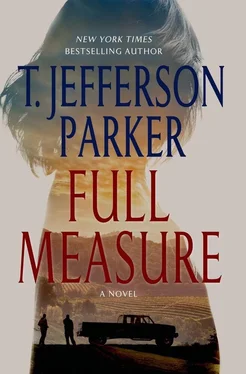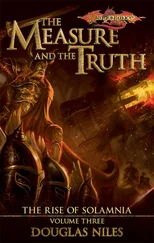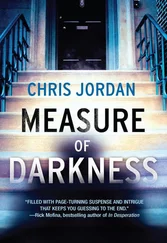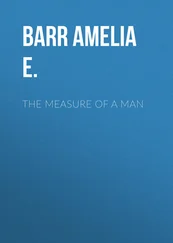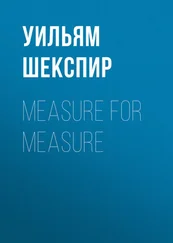Later, in silence, he drove Iris to her car downtown. Someone hustled down the sidewalk in the dark, hunched in a loose white wrap that for a second could have been a tribal garment, and Patrick’s heart jumped and his ears rang and his thoughts went AWOL, straight back to Sangin with Myers and Zane. He wished Iris would say something. Anything. Words in the air keep the devil gone. Sometimes. He stole a glance at her and caught her looking out the window, as usual, alert to who-knew-what? He was suddenly very aware of the space between them — he guessed it to be about twenty-two inches — and of the fine trembling in that air, which carried the weight of possibility in it, along with the chance, always present in his mind, that sudden violence would take it away.
In the purple dusk of the next evening, after ten hours of hard labor that displeased his father, Ted drove to Pride Auto Repair. Earlier that day in the grove Ted had been reassigned to the tree-painting detail because Archie and Patrick could more quickly wire the new timers. Ted had gone to the barn to get a smaller, easier-to-carry sprayer, but had not remembered to triple rinse it before pouring in the paint and water. The triple rinse was mandatory, Archie always said, because some of the sprayers had been used for a powerful weed killer just this spring. Even a trace of herbicide residue left in the sprayer could kill an avocado tree. Ted had already painted eighty trees when he suddenly realized he’d forgotten to triple rinse the sprayer.
He ran and confessed the whole thing to his father. Ted could see the fury just behind the skin of his father’s face, and he waited for Archie to explode. But he didn’t. His father maintained patience. Archie put a hand on Ted’s shoulder and looked straight into Ted’s eyes and told him that all eighty of the newly painted trees were now much more likely to die. So, tomorrow’s first task would be to pressure-strip off the paint. His father had told him to “Get with the program, Ted. Please! ”
Ted pulled into the parking lot. Pride Auto Repair was a big brick building, set well back from Oak Street. Parked near the front door Ted saw a familiar ’57 Chevy Bel Air, glistening white with aqua insets and abundant chrome. He remembered it as Cade’s car from ten years ago. The shop had been boarded up for those years but now Ted saw that the plywood was gone from the window frames and the new glass was clean and clear.
He got out and walked toward the front door on aching feet. The old neon sign was up again too, he saw, depicting a blue Ford Model T doing a wheelie, red flames coming off the rear tires. The letters over the car were white and said simply, PRIDE. As a boy he’d always liked that sign. Now it was lit up in the near dark and Ted watched its colors play across the polished hood of the Bel Air. The front door was wood and clear glass with blinds behind the glass. The blinds were rolled up. Ted looked through the glass and saw Cade Magnus looking back at him. Cade waved him in and Ted pushed through the door.
Magnus stood behind the old counter, which was strewn with a computer, printer, and other peripherals, a new phone-fax, an answering machine, knotted cords, and surge protectors. He wore a light blue short-sleeve shirt with “Cade” embroidered over one pocket, tucked into a pair of navy work pants. He was thick and muscular, as Ted remembered, and had the same smugly engaging smile. Through the windowed double doors behind Magnus, Ted saw the repair bay out back, the high ceilings and the parts racks and the big lifts resting at floor level. “Ted Norris,” Cade said.
“Are you going to move back to Fallbrook?”
“I already have. I heard you lost your trees in the fire. Sorry. Those Lamb Haas avos you guys grew were the best I ever had.”
“What about your father?”
“What about him? He’s still up in Idaho. I got tired of it there. What about your father? Does he still believe you’re mentally defective?”
Ted blushed. He’d confided certain things to Cade and Jed Magnus years ago, when he was fourteen and curious about the White Crusade, badly wanting to do something about the 9/11 attacks. He couldn’t remember specifics but apparently his relationship with his father had been a topic. “No, I wouldn’t say that.”
Magnus gave Ted a just-you-and-me smile. “Good for you, then.”
“Do you have a family now?”
“An ex and two down in Oceanside, another ex and two more up in Coeur d’Alene. No more children for this white supremacist.”
“I’m twenty-six.”
“I saw your brother at City Hall Tuesday and he told me to go to hell.”
“Pat’s capable of that. He just came back from Afghanistan a few days ago. Third Battalion, Fifth Marines. The Dark Horses. ‘Get Some.’ He’s got an edge.”
“You were sixteen when I left. Pat was just, what—”
“Twelve. Why did you come back?”
Magnus gestured with open hands. “I’m a good mechanic. Got plenty of child support to pay. So I’m going to pick up where I left off. And this was the last place where I really enjoyed living.”
“That’s funny because most people here don’t like you at all.”
“They don’t even like the idea of me. I’ve already pissed some of them off.”
Ted looked around the big room. It had brick walls with framed posters of the Fallbrook Classic Car Show hung perfectly straight, the glass as clean as the windshield of his taxi. The windows were the old-fashioned frosted mesh safety glass except for the front door glass, and the transom window over the door, through which Ted saw the neon Model T kicking up its red flames. He read EDIRP.
The pool table was there, just as he remembered it. He thought of seeing Jed and Cade playing one day when business was slow, and customers playing while they waited for their cars. The talk was all political. Ted remembered heated words about a new pseudoscience called global warming. He had always liked the sound of billiard balls hitting, so sharp and purposeful. Like the Glock. The cue rack, loaded with sticks, was bolted to the wall right where it had been. Ted saw the small blue squares of chalk in the bottom tray. Beside the rack stood the old jukebox, chrome with a wood-look trim.
In the far corner of the room stood a pile of rubbish — flimsy metal shelving, defunct tube lights and fixtures, old electrical line, scraps of particleboard, a wooden desk with two broken legs, a rat’s nest built of twigs and bits of paper and cloth. “Lots to do,” said Ted.
“Check out the bay.”
Magnus lifted the counter panel and Ted followed him through to the open double doors. The repair area was large, with three lifts and plenty of shelves for parts and a big roll-up door in the rear. Ted remembered the new tires stacked halfway to the ceiling, scores of them. He smelled them now, though this was impossible. The old-time vending machine was still there, whitened with dust. The couch sitting along one wall he also remembered, and the lamp next to it. One day when he was young — nine or ten, and riding his bike around town — Ted had seen, through the open roll-up door, Jed Magnus sitting on that sofa, reading. The lamp illuminated him in the darkened interior of the repair bay. Jed’s wife, Ellen, sat close beside him, also reading. Jed’s hand was on her knee. The Magnuses didn’t look as bad as his parents — and almost everyone else in Fallbrook — said they were. Ellen was pretty. When Ted pedaled his bike by, they had both looked up and nodded to him. The couch had been covered in red paisley upholstery then, and it still was today.
“I hear you drive a taxi. Bring your cab here for service so long as it isn’t Jap or Korean.”
Читать дальше
